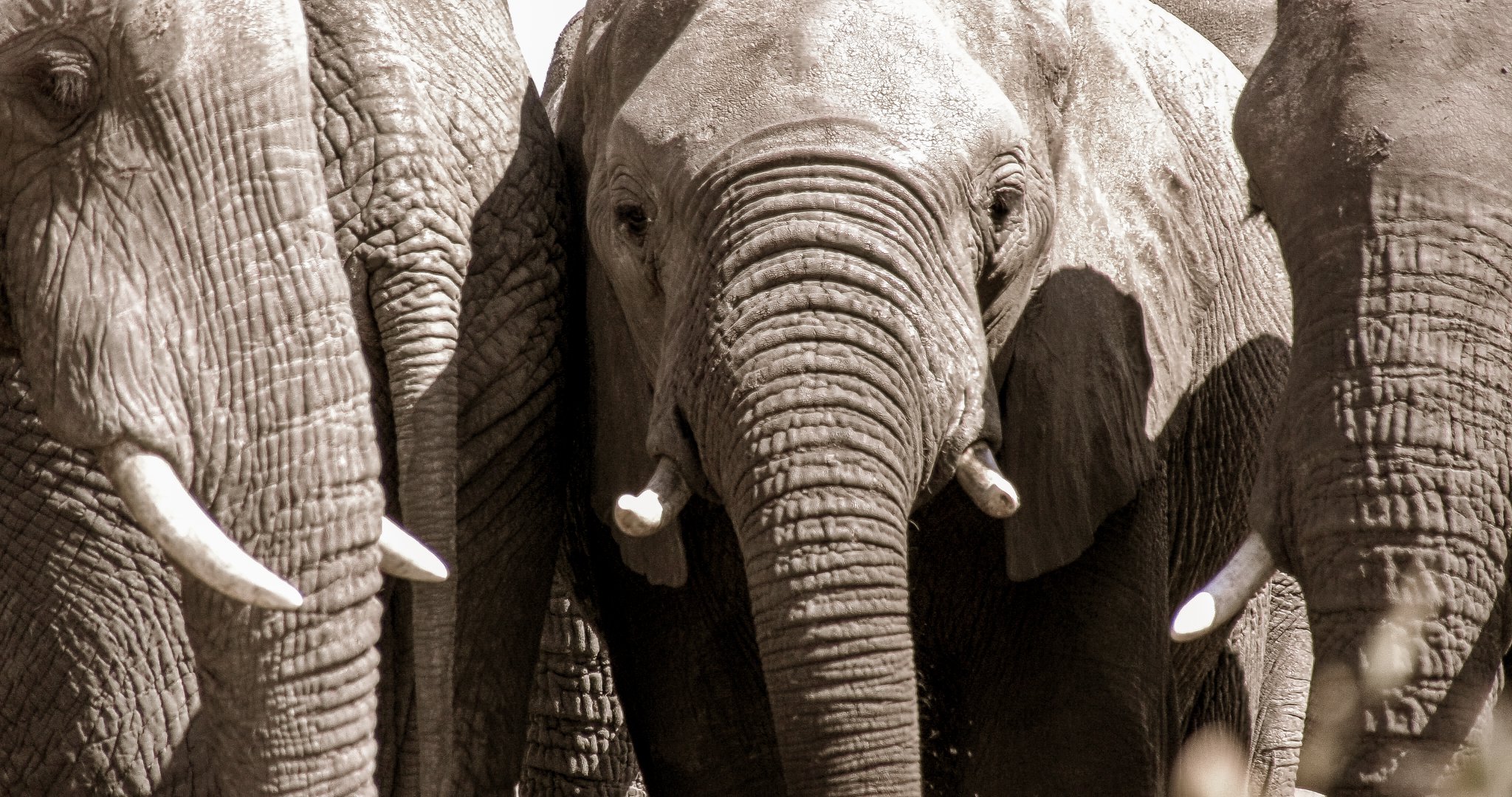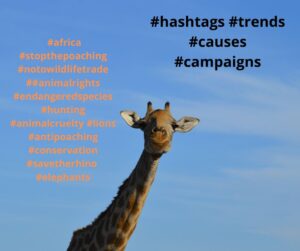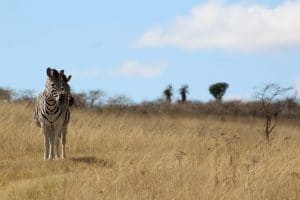14 July 2020
Dear Ricky Gervais, Joanna Lumley, Peter Egan, Ed Sheeran, Dame Judi Dench and Piers Morgan
OPEN LETTER: Celebrity campaigns undermine successful conservation and human rights
As representatives of millions of rural Africans, the majority of whom live below the poverty line, we are urgently appealing to you, as celebrities with status, to stop undermining our globally recognised conservation efforts and our basic human right to sustainably use the natural resources on which our communities’ livelihoods depend.
In recent months you have lent your names to campaigns to stop hunting in Africa. We acknowledge that you are doing so with the best of intentions and we welcome your interest in our wildlife. But you have expressed these views without full appreciation of the implications for our people or wildlife, and without consulting us, who live with and manage African wildlife and who will ultimately determine its future. Indeed, several of the campaigns with which you are associated, such as this campaign, dismiss the beneficial impacts of regulated trophy hunting on local communities and our wildlife populations as ‘myths’. We would like to share our perspectives and invite you to visit our communities to witness and understand the realities of conservation in Africa.
Successful conservation must start with those of us who live alongside dangerous large animals, whose value is deeply ingrained in our cultures. During colonial times, European colonists removed our rights to manage and benefit from these animals, and in many instances forcefully evicted us from our lands, often to make way for protected areas. This led to dramatic loss of wildlife and habitat – a disaster for conservation, our traditions and our livelihoods. Post-independent governments restored our rights, integrating wildlife into rural economies through inclusive conservation approaches. This provided socio-economic incentives to live with and sustainably manage our wildlife.
• On average, 50 – 90% of these economic incentives come from sustainable, regulated, humane and scientifically verified hunting methods. This has led, in southern African countries, to increasing wildlife populations and habitat, in stark contrast to other regions in the world where biodiversity loss and habitat destruction accelerate at disastrous rates.
• Habitat has increased by 80% over the last three decades in many of our countries, often with corresponding increases in wildlife numbers.
Although you may view elephants, lions and other wildlife through a romantic, idealized lens, our daily reality of living with these magnificent and valued, yet dangerous animals, requires more pragmatism. We worry daily that our children may be killed on their way to school, or that our ability to provide for our families will be destroyed within a few hours by elephants in our fields or large predators among our livestock. Some facts for consideration:
• As recently as 1 July 2020, an elephant killed a 22-year-old man in Zimbabwe – the family breadwinner – as he walked home from his fields. Elephants killed at least 30 people in the country in 2019.
• In Botswana, elephants killed 36 people in 2018, injured dozens more and destroyed the livelihoods of thousands.
• Recently, two Zimbabwean siblings disappeared from their home. Only the dismembered head of the two-year-old was recovered from the suspected hyena attack and the four-year-old has never been found.
Despite this, elephants, lions and other species live amongst us, not only in protected areas, and are multiplying because we want them to. The harsh reality is that if incentives for us to conserve and share our land with wildlife are removed, their future in Africa will be as bleak as that of wolves, brown bears and other large carnivores that were once plentiful in the UK, Europe and the US.
You have every right to consider regulated, sustainable hunting abhorrent and we appreciate that for those not familiar with the realities of rural Africa, it may seem a counter-intuitive conservation strategy. But if your objective is conservation – not solely recognising individual animal rights – we call upon you, before passing judgement, to understand the context of coexisting with dangerous wildlife: consider our perspectives, evidence base, and success stories from a conservation method that recognises the basic human right of our peoples to manage and benefit from the sustainable use of our natural resources. If we cannot feed our families through humane and sustainable use of wildlife, we will have no option but to adopt land uses that will invariably destroy our beautiful natural landscapes and exterminate our treasured wild animals – an all too familiar situation throughout the world.
It will be no news to you that many of our countries are not wealthy or endowed with rich resources. One of those which we do have, wildlife, is demonstrably managed responsibility and sustainably. We are tired of people from elsewhere, far removed from our realities, talking on our behalf and undermining our success. We are an integral part of the solution to illegal wildlife trade, poaching and unsustainable use of biodiversity. It is disappointing that while animal rights campaigns to stop hunting have raised enormous sums of money, we have yet to see evidence of those funds conserving African wildlife or benefiting any of our communities in their role as custodians of that wildlife. What and who do these campaigns benefit? Their impact will be to remove our incentives to manage and live side by side with wildlife. Imposing worldviews and value systems from far away places, amplified through your powerful, influential voices, results in disastrous policies that undermine our rights and conservation success.
We recognize and respect the rights of Western celebrities and animal protectionist campaigners to discuss how best to manage African wildlife. However, these discussions must be informed by our voices as custodians of this wildlife. At a minimum this should acknowledge both our conservation successes and our communities’ right to earn a livelihood through the culturally appropriate and sustainable management of our resources for the benefit of our people and wildlife. Anything less is to put the rights of animals before the rights of Africans.
We write this letter as the world is demanding the acknowledgement and righting of past and present wrongs in the form of historical erasure, plunder of resources, labour exploitation, structural inequalities and imposition of unjust Western values and belief systems based on privilege. We want you to hear our voices; our conservation successes and lived realities are not ‘myths’.
Yours sincerely,
BOTSWANA
Gakemotho Satau The Trust for Okavango Cultural and Development Initiatives (TOCaDI)/ Kutlwano Russel Mababe Zokotsama Community Development Trust / Tumeleng Mogodu Mababe Zokotsama Community Development Trust / S.K. Moepedi Okavango Kopano Mokoro Community Trust / Kerapetse Bantu Peter Tcheku Community Trust / Amos Ben Mabuku Chobe Enclave Community Trust –Former Chairperson
MALAWI
Malidadi Berlings Langa Board Chairman Kasungu Wildlife Conservation Association / Chifundo Dalireni Branch Manager Wildlife and Environmental Society of Malawi / Dickson Saka Kasaungu Wildlife Association
MOZAMBIQUE
José Monteiro Mozambique
NAMIBIA
Hilda N. Nathinge Vice Chairperson of the North Central Conservancy, Representing 9 conservancies / Max Mayemburuko Chairperson of the Kavango East and West Conservancy Community Forest Associations (Representing 6 conservancies) / Theo Naruseb Chairperson of the Erongo Conservancy Association (Representing 4 conservancies) / Brisetha Hendricks Chairperson of the Southern Conservancy Association / Stein Katupa Kunene Conservancy Regional Association – Secretary to the Conservancy Association (Representing 40 Conservancies) / Zaack Dirkse Representing Southern Conservancies (6 Conservancies) / Geoffrey Tukuhuphwele Zambezi Conservancy Chairperson (Representing 15 Conservancies and one CBO) / Deoclearancia Dax Manager #Khoadi//Hôas Conservancy / Judy Melikie Huab Conservancy – Chairperson / Tommy Adams Torra Conservancy – Chairperson / Gerson //Aiseb Sorris Sorris Conservancy – Chairperson
SOUTH AFRICA
Dr Lamson Maluleke Technical Advisor Makuleke Communal Property Association, Makuleke community / Lungelo Noluthando Dludla Youth in Support of CBNRM
ZAMBIA
Dr Rodgers Lubilo Chairman, Zambia National CBNRM Forum
ZIMBABWE
Bulilima District Never Ncube CAMPFIRE Inter-ward Chairperson / Delani Mabhena Councillor Malanswazi Ward / Phillip Mpofu CAMPFIRE Chairperson Khame Ward / Zoolakes Nyathi Council Chairperson / Morning Manguba Headman; Isaac Msebele CAMPFIRE Chairperson Ndolwane Ward / Land Ndebele Finance Committee Chairperson; Innocent Mavunela Conservation Committee ChairpersonChipinge District Patson Simango CAMPFIRE Chairperson Mahenye Ward / Liberty Chauke Campfire Association – Mahenye Communal land / Kumbula Jimmy CAMPFIRE Chairperson Mtandahwe Ward / Naison Ndhlovu Mahenye Ward Councillor / K. Njanjeni Mtandahwe Ward CouncillorHwange District Nyalani Mgaduwi CAMPFIRE Chairperson Sidinda Ward / Chief Shana / Sinikiwe Nyathi Sidinda Ward Councillor / Jabulani Ndubiwa, CAMPFIRE Elder Jambezi WardMbire DistrictIshmael Chaukura CAMPFIRE Inter-ward Chairperson Masoka Ward / Promotion Dzomba Village Head Masoka Ward / Sarudzai Goredema CAMPFIRE Chairperson Masoka Ward / Oscar Marowa Committee Member Masoka Ward / Public Museruka Committee member Angwa Ward / Ishmael Jack CAMPFIRE Vice Chairperson Angwa Ward / Julius Chokubooka CAMPFIRE Treasurer Angwa Ward / Justin Mawachi CAMPFIRE Secretary Angwa Ward / Cossam Chikondoma CAMPFIRE Vice Secretary Angwa WardTsholotsho District Godfrey Ndlovu CAMPFIRE Inter-ward Chairperson / Chief Tategulu / Chief Matupula / Chief Siphoso



